
Enchanting Sine-Saloum Delta: Senegal's Hidden Gem
Nestled between the Saloum and Sine rivers, the Sine-Saloum Delta is a captivating blend of rich biodiversity and cultural heritage. This UNESCO World Heritage site is a paradise for nature lovers and adventurers alike. The delta's unique landscape features mangroves, lagoons, and islands teeming with life. Birdwatchers will be thrilled by the sight of pelicans, flamingos, and other exotic birds. The delta is also home to dolphins and manatees, offering unforgettable wildlife experiences. Beyond its natural beauty, the Sine-Saloum Delta is a cultural treasure trove. The region is dotted with serene fishing villages where you can immerse yourself in the local Serer and Mandinka cultures. Traditional music, dance, and art are an integral part of daily life, providing a vibrant glimpse into the community's way of life. The delta's sacred baobab trees and ancient burial mounds offer a fascinating peek into the area's history and spiritual significance. Eco-tourism is a growing trend in the Sine-Saloum Delta, with numerous lodges and campsites offering sustainable accommodation options. Kayaking through the mangroves, fishing with local guides, or simply relaxing on a pristine beach are just a few ways to enjoy this untouched paradise. Whether you're seeking adventure or tranquility, the Sine-Saloum Delta promises an enriching and unforgettable experience.
Local tips in Sine-Saloum Delta
- Visit between November and March for the best weather and birdwatching opportunities.
- Hire a local guide to explore the mangroves and learn about the delta's unique ecosystem.
- Stay in eco-lodges to support sustainable tourism and enjoy an authentic experience.
- Try the local cuisine, especially freshly caught fish and traditional Senegalese dishes.
- Respect local customs and traditions; always ask for permission before taking photos of people.
Enchanting Sine-Saloum Delta: Senegal's Hidden Gem
Nestled between the Saloum and Sine rivers, the Sine-Saloum Delta is a captivating blend of rich biodiversity and cultural heritage. This UNESCO World Heritage site is a paradise for nature lovers and adventurers alike. The delta's unique landscape features mangroves, lagoons, and islands teeming with life. Birdwatchers will be thrilled by the sight of pelicans, flamingos, and other exotic birds. The delta is also home to dolphins and manatees, offering unforgettable wildlife experiences. Beyond its natural beauty, the Sine-Saloum Delta is a cultural treasure trove. The region is dotted with serene fishing villages where you can immerse yourself in the local Serer and Mandinka cultures. Traditional music, dance, and art are an integral part of daily life, providing a vibrant glimpse into the community's way of life. The delta's sacred baobab trees and ancient burial mounds offer a fascinating peek into the area's history and spiritual significance. Eco-tourism is a growing trend in the Sine-Saloum Delta, with numerous lodges and campsites offering sustainable accommodation options. Kayaking through the mangroves, fishing with local guides, or simply relaxing on a pristine beach are just a few ways to enjoy this untouched paradise. Whether you're seeking adventure or tranquility, the Sine-Saloum Delta promises an enriching and unforgettable experience.
When is the best time to go to Sine-Saloum Delta?
Iconic landmarks you can’t miss
Keur Saloum
Experience the serene beauty of Toubakouta at Keur Saloum, where comfort meets the natural wonders of Senegal's stunning landscapes.

Saloum Delta National Park
Discover the breathtaking landscapes, rich biodiversity, and cultural heritage of Saloum Delta National Park, a must-visit destination in Senegal.
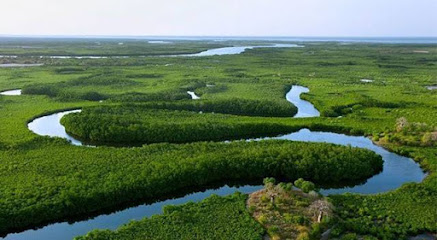
Saloum Delta
Explore the breathtaking Saloum Delta in Senegal, a UNESCO World Heritage site rich in biodiversity and cultural heritage, perfect for eco-tourism.
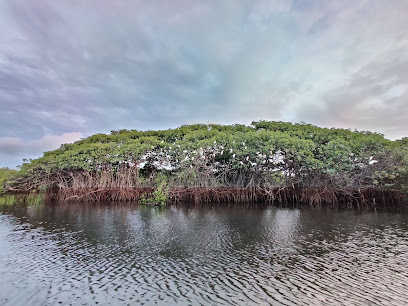
Unmissable attractions to see
Baobab Sacré
Explore Baobab Sacré, a stunning tourist attraction in Fadial, famous for its majestic baobab trees and rich cultural significance.
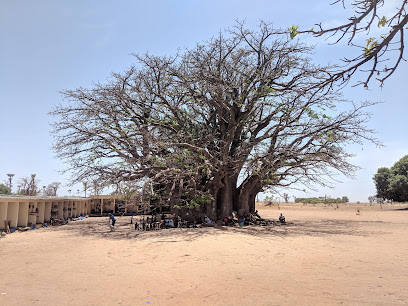
Fathala Wildlife Reserve
Experience the wild wonders of Fathala Wildlife Reserve in Senegal, where unique encounters with nature await every visitor.
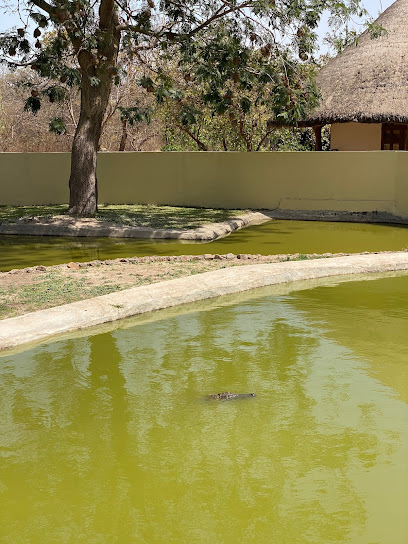
Shell Island (Deourum Bu Mag)
Explore Shell Island, a pristine wildlife refuge in Senegal, offering breathtaking landscapes, diverse wildlife, and serene beaches for nature lovers.
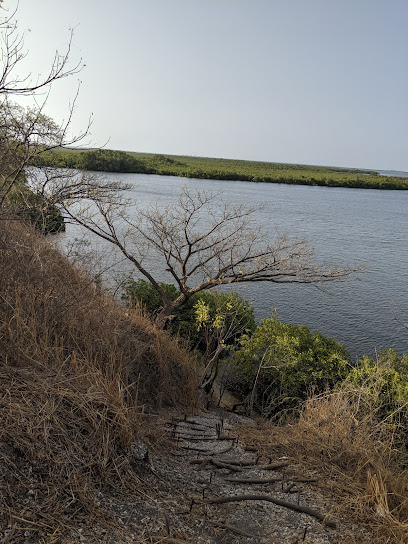
Fô Sémou (piscine naturelle) sine saloum île du saloum
Discover the breathtaking beauty of Fô Sémou, a natural swimming pool in Sine Saloum, where nature meets culture in perfect harmony.
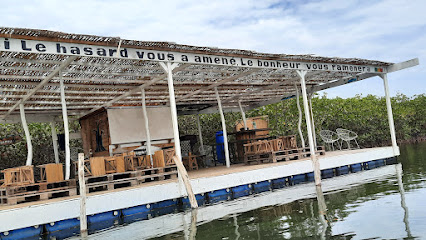
Puits de sel de Palmarin
Experience the enchanting Puits de sel de Palmarin, where stunning salt pans and rich cultural heritage create a unique travel experience in Senegal.
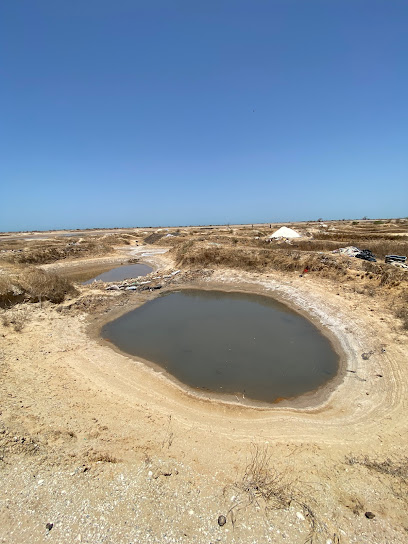
Djifére
Explore Djiféré, a tranquil coastal village in Senegal, renowned for its pristine beaches, vibrant culture, and delicious local cuisine.
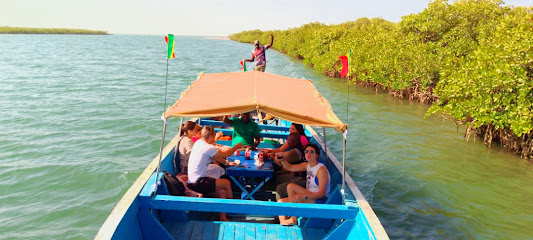
Les aventuriers du Saloum
Explore Les Aventuriers du Saloum, where thrilling water activities meet delicious local cuisine in the heart of Dangane's stunning landscapes.
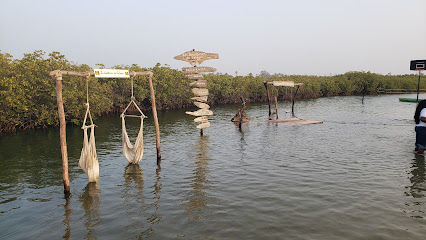
Baobab Rasta
Discover the rich culture and vibrant atmosphere of Baobab Rasta in Niodior, a unique tourist attraction that showcases the beauty of Senegal.
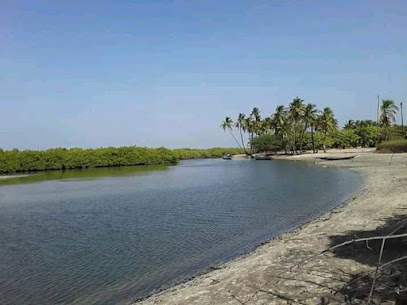
Bureau d'accueil touristique de Mar Lothie
Explore Mar Lodj's vibrant culture and attractions at the Bureau d'accueil touristique de Mar Lothie, your essential travel guide in Senegal.
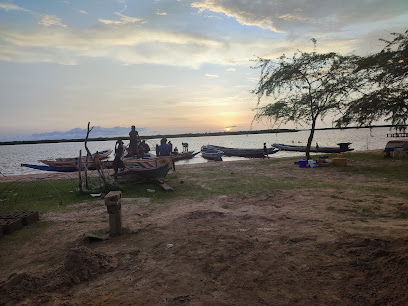
Bassin Khakhoume
Discover the tranquil beauty of Bassin Khakhoume in Kaolack, a serene oasis perfect for relaxation and nature lovers.
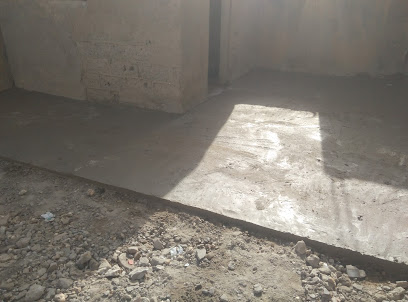
AMP protegee de Sangomar
Explore the natural beauty and cultural richness of AMP Protegee de Sangomar in Diofandor, a serene tourist attraction in Senegal.
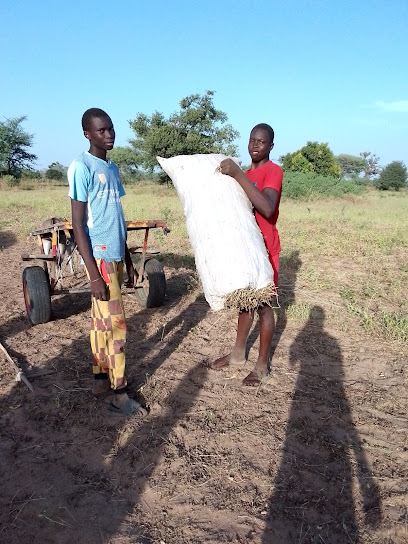
Darou marone , Sénégal
Explore Darou Marone, an enchanting tourist attraction in Senegal, where culture, nature, and community come together for an unforgettable experience.

plage
Experience the natural beauty and tranquility of Plage in Fatick, a serene beach destination perfect for relaxation and cultural exploration.
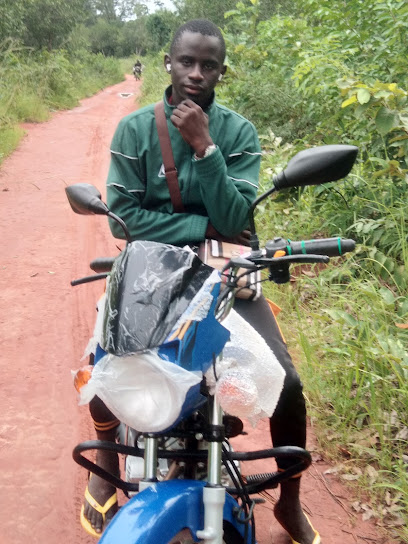
Lagune de Mbaling
Explore the serene beauty of Lagune de Mbaling, a hidden coastal paradise near Mbour, Senegal, perfect for relaxation and adventure.
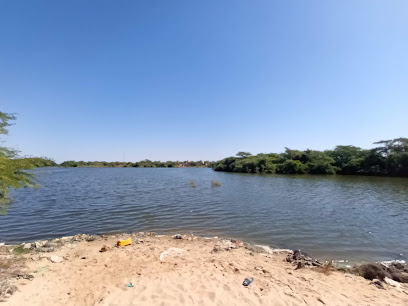
Maraîchage de Fadiouth
Discover the captivating beauty of Fadiouth, a unique shell island in Senegal where culture and nature blend seamlessly.
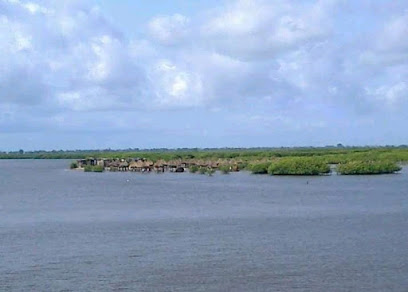
Essential places to dine
Le Miam Miam
Experience authentic Senegalese cuisine with breathtaking coastal views at Le Miam Miam in Guilor.
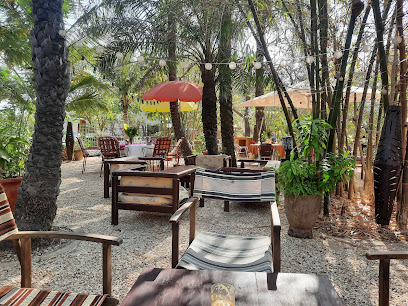
Paradise VIP Lounge
Experience exquisite dining at Paradise VIP Lounge in Ndangane—where local flavors meet vibrant ambiance for an unforgettable meal.
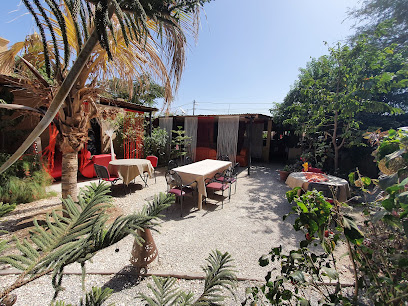
Restaurante Chez Boum
Discover authentic Senegalese cuisine at Restaurante Chez Boum in Toubakouta - where every meal tells a story.
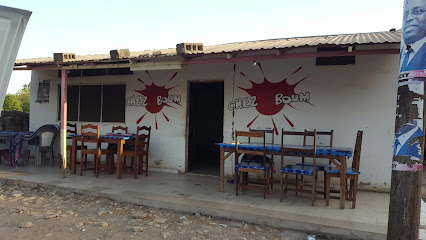
La Mangrove
Experience comfort and flavor at La Mangrove in Toubakouta - where hospitality meets culinary delight amidst stunning natural beauty.
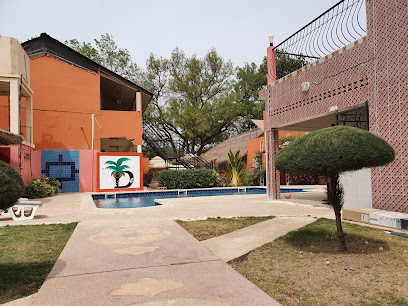
La Maroise
Discover comfort and authentic Senegalese cuisine at La Maroise – your perfect retreat in Ndofane.
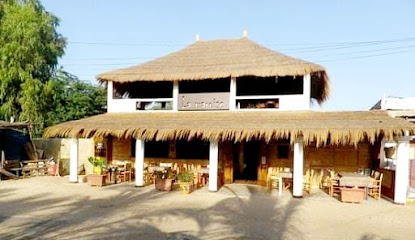
Resto-bar keur Ana-fi
Experience authentic Senegalese cuisine at Resto-bar keur Ana-fi in Sokone – where local flavors meet warm hospitality.
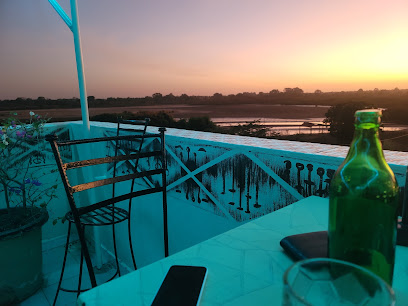
Croc'Odile Resto Djilor
Discover authentic West African flavors at Croc'Odile Resto Djilor – where every meal tells a story of Senegal's rich culinary heritage.
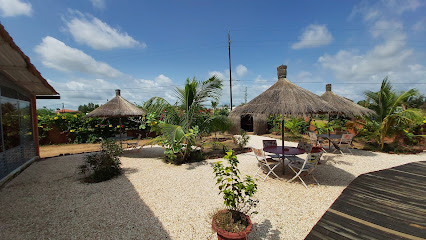
Restaurant None Singa
Experience authentic Senegalese flavors at Restaurant None Singa in Palmarin - a must-visit culinary destination for every traveler.
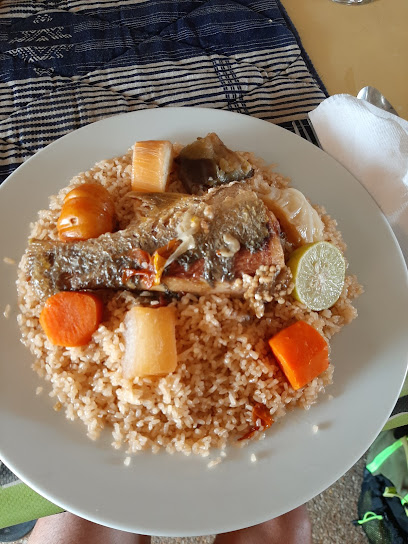
Restaurant PAM Toubacouta
Experience authentic Senegalese cuisine at Restaurant PAM in Toubacouta - where every meal tells a story.
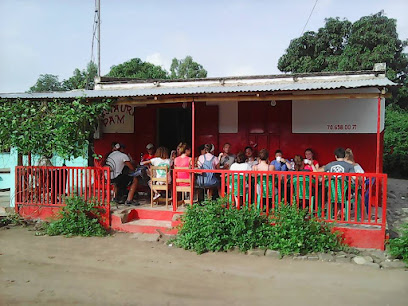
Mar Setal
Experience authentic Senegalese flavors at Mar Setal in Mar Lodj – where every dish tells a story.
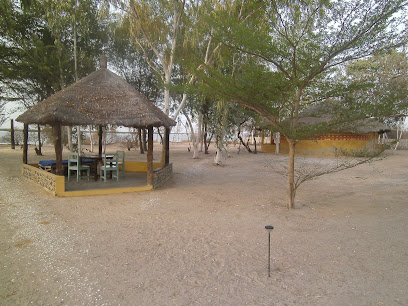
Le flamand rose
Discover authentic Senegalese flavors at Le Flamand Rose, where every meal is a celebration of local culture and culinary excellence.
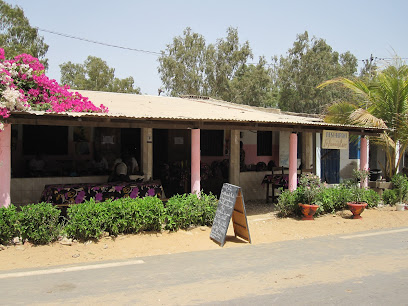
RESTAURANT LES PIROGUIERS
Experience authentic Senegalese cuisine at Restaurant Les Piroguiers in Ndangane Campement—where every meal tells a story.
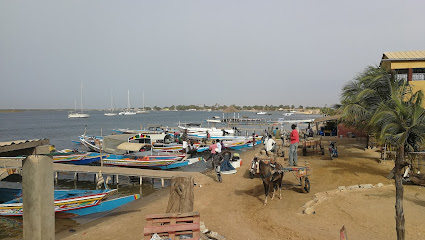
La Paillotte - Chez Alioune
Experience authentic Senegalese cuisine with breathtaking views at La Paillotte - Chez Alioune in Mar Lodj.
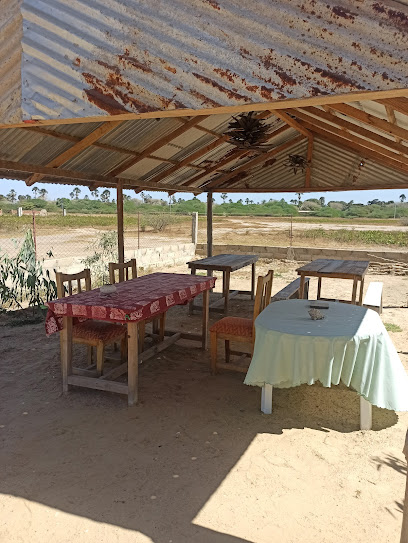
Restaurant Chez KANGOU Lodge
Experience authentic Senegalese flavors at Restaurant Chez KANGOU Lodge in Fimela - where culinary excellence meets local charm.
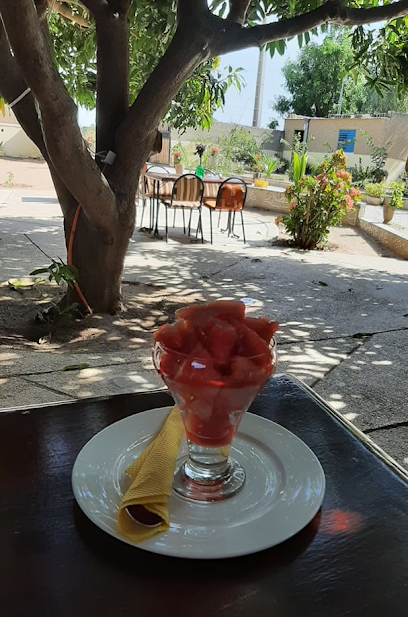
COLIBRI RESTO
Discover authentic Senegalese cuisine at Colibri Resto in Fatick – a delightful culinary journey awaits!
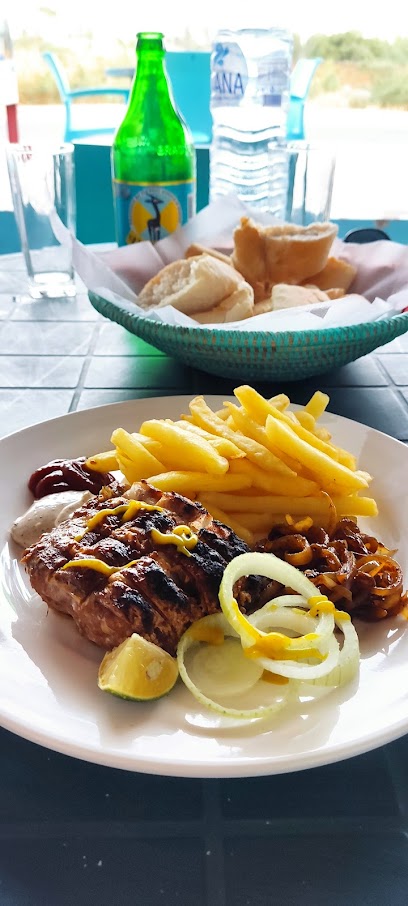
Markets, malls and hidden boutiques
Keur Saloum
Experience the serene beauty of Keur Saloum, a riverside hotel in Toubakouta offering comfort and cultural immersion in Senegal's stunning landscapes.

ousmanecreations.sitew.com
Experience the vibrant textile culture of Senegal with bespoke tailoring at Ousmane Creations, a delightful dressmaker's oasis in Ndangane.
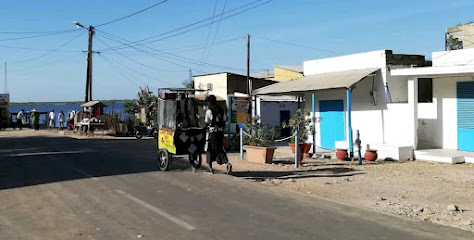
Karang Market
Explore Karang Market - a vibrant shopping destination filled with local culture, fresh produce, and unique handcrafted goods in the heart of the region.
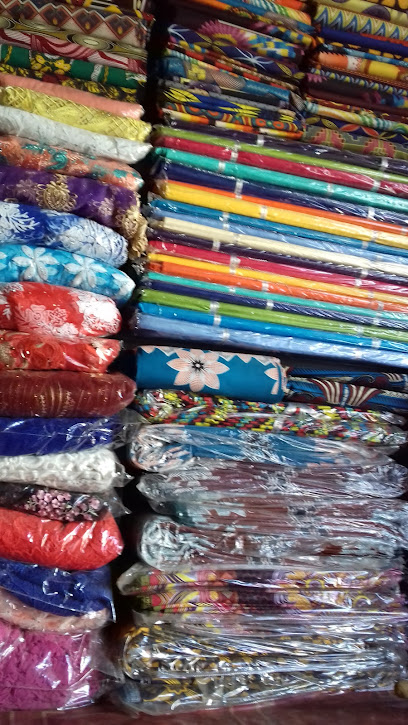
KIMS
Discover the heart of shopping and dining at KIMS Shopping Mall in Karang, where local culture meets modern convenience.
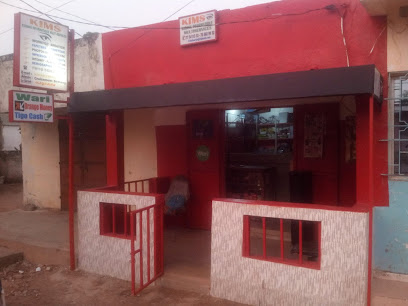
La Boutique Des Femmes
Discover unique women’s fashion and local craftsmanship at La Boutique Des Femmes, Toubakouta’s premier shopping destination.
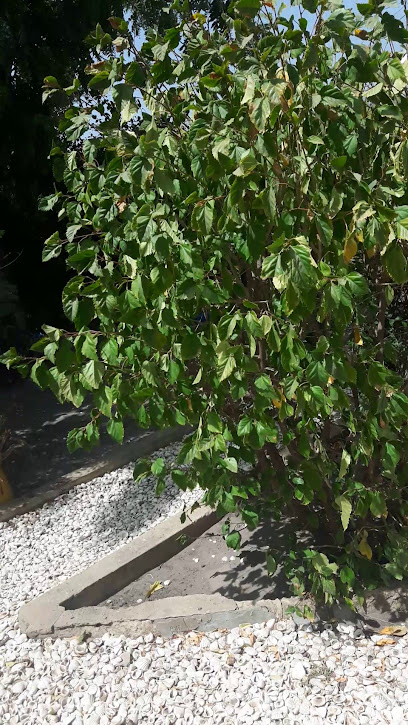
Tailleur Toure
Discover the vibrant fashion of Senegal at Tailleur Toure, a clothing store in Sokone offering unique, handcrafted garments that celebrate local culture.
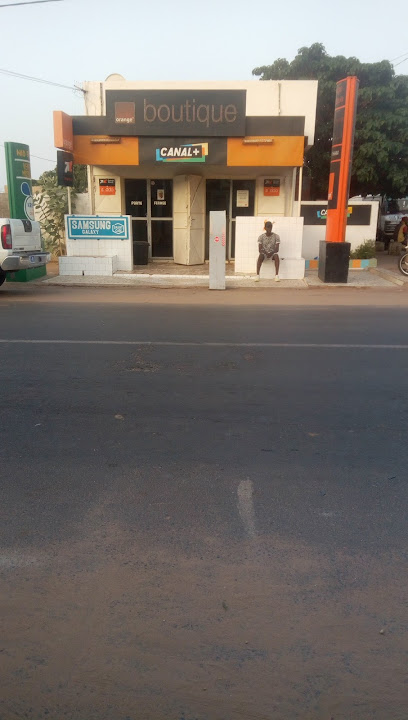
Bechirou Babou
Discover the vibrant local culture and unique finds at Bechirou Babou in Foundiougne, a lively grocery store and shopping mall experience.
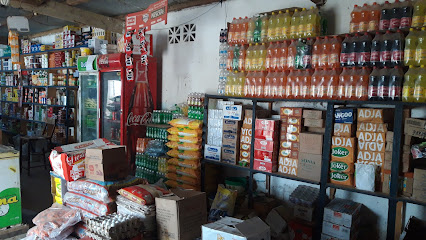
Shop ba et frere
Discover the latest electronics at Shop ba et frere, your premier destination for high-quality gadgets in Senegal.
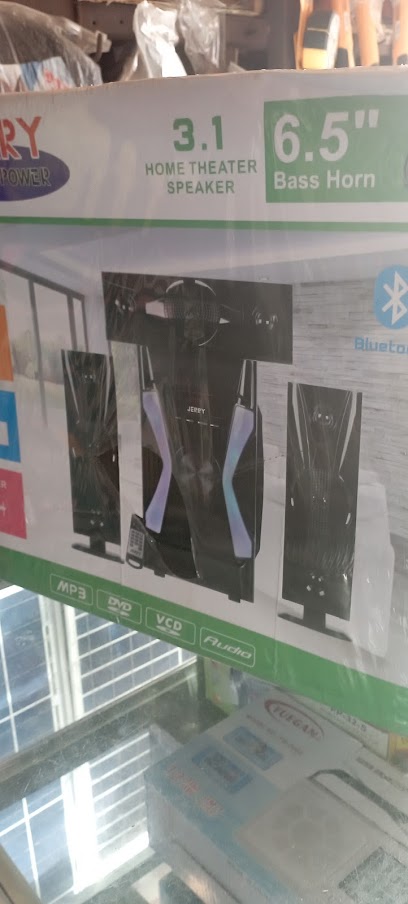
Chez Fallou
Explore top-quality electronics at Chez Fallou, your ultimate shopping destination for the latest gadgets and appliances in Senegal.
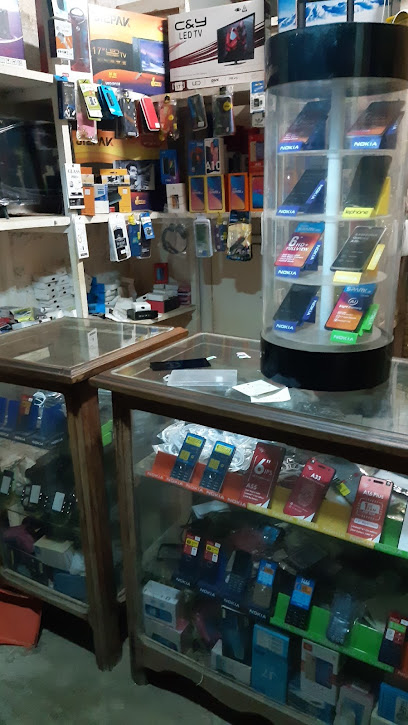
Chez Barth Simpson
Explore the charm of Chez Barth Simpson, a vibrant gift shop in Missirah showcasing unique Senegalese crafts and souvenirs.
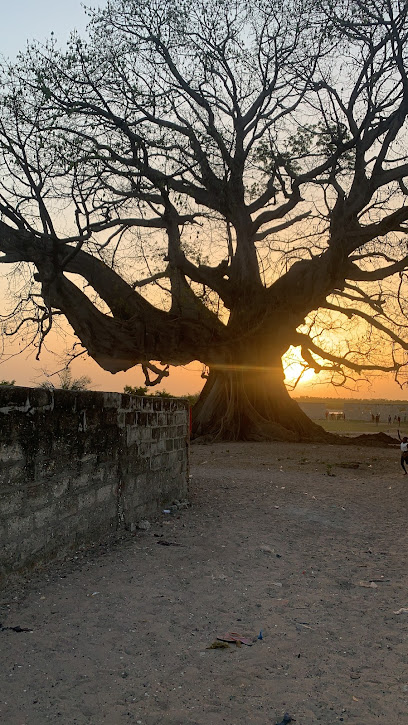
La boutique à Batik
Experience the vibrant world of Senegalese fashion at La Boutique à Batik, where traditional batik art meets modern style in Palmarin.
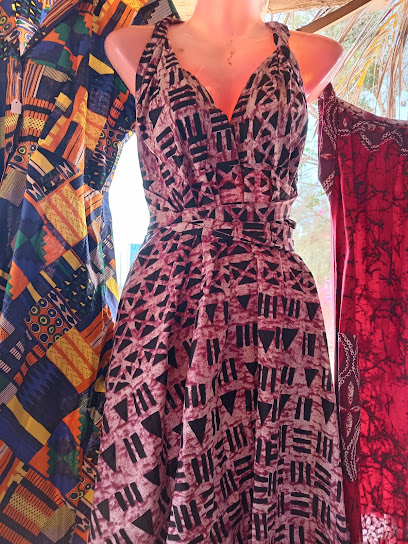
La Boutique - Ousmane Creations
Explore the vibrant world of fabrics and creativity at La Boutique - Ousmane Creations, Fimela's premier sewing shop.
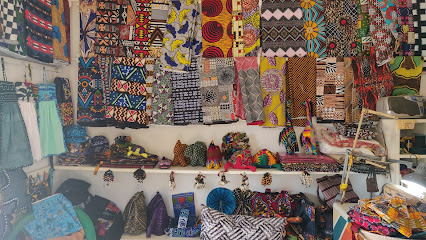
Jewelry shop
Explore Toubakouta's finest jewelry shop, where local artisans create stunning, handcrafted pieces reflecting Senegal's rich cultural heritage.
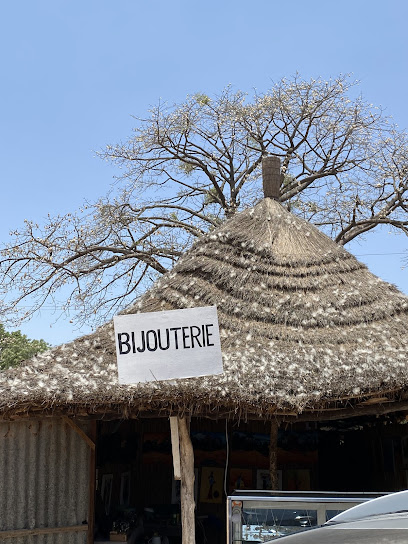
Mbaye sopé serigne babacar sy
Discover the essence of Senegalese beauty at Mbaye sopé serigne babacar sy, a unique cosmetics store in Toubakouta offering natural, artisanal products.
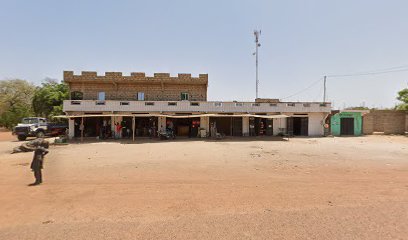
BOKKE - Créations en Wax / Ndangane
Explore BOKKE in Ndangane for authentic Senegalese wax creations, showcasing vibrant colors and intricate patterns that celebrate local craftsmanship.
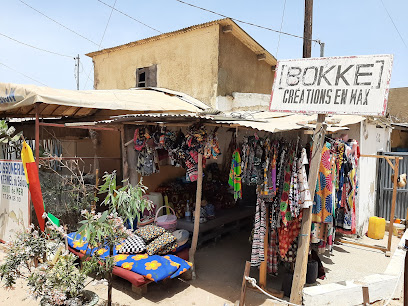
Essential bars & hidden hideouts
LES LOISIRS DU SALOUM
Experience the flavors of Senegal at Les Loisirs du Saloum, where culinary excellence meets stunning riverside views.
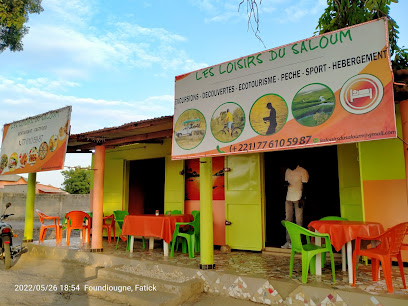
Dibiterie Mbame (Porc)
Experience the authentic flavors of Senegal at Dibiterie Mbame, a vibrant bar in Fatick known for its delicious pork dishes and welcoming atmosphere.
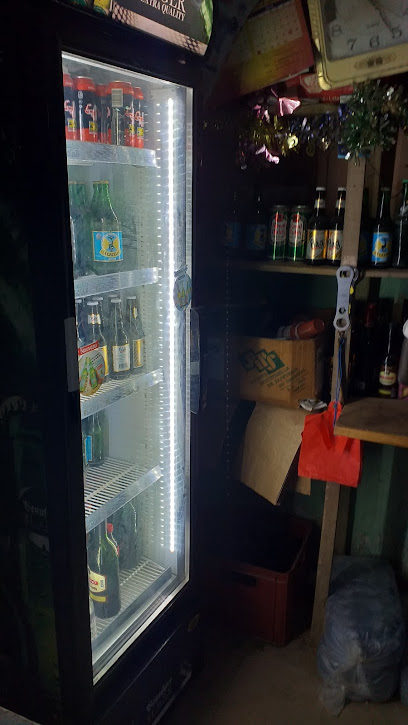
Makode Barr
Discover the vibrant atmosphere of Makode Barr, a popular bar in Guinguineo offering an array of local drinks and a friendly ambiance ideal for socializing.

Chez JJ
Discover the lively ambiance and local flavors of Chez JJ, a premier bar in Toubakouta offering a unique cultural experience.
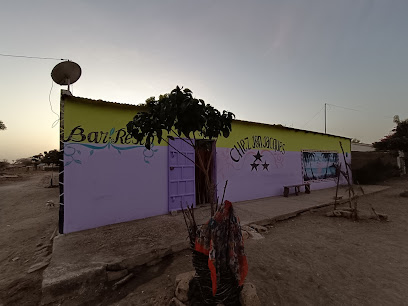
Bar Resto chez Berou
Discover the heart of Senegalese nightlife at Bar Resto chez Berou, where local flavors and vibrant culture come together for an unforgettable experience.
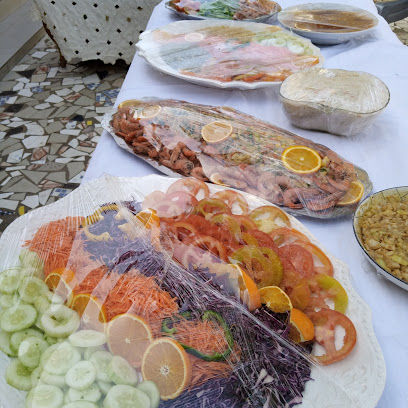
Bar Plaza
Discover Bar Plaza, a vibrant nightlife destination in Pointe Sarène, offering refreshing drinks and lively entertainment in a culturally rich atmosphere.
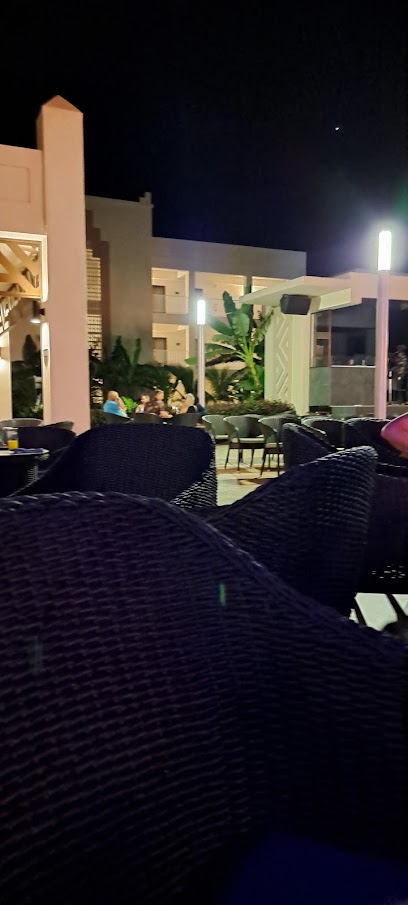
Dépôt ALLELUIA
Experience the vibrant local culture at Dépôt ALLELUIA, a lively bar in Senegal offering refreshing drinks and a welcoming atmosphere.
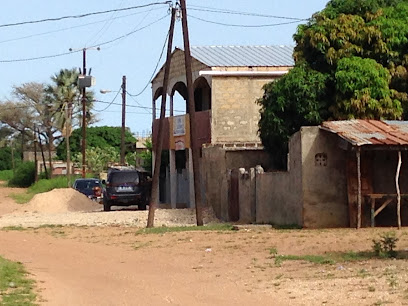
Dunun
Experience the vibrant nightlife of Pointe Sarène with refreshing drinks and a welcoming atmosphere at Dunun.
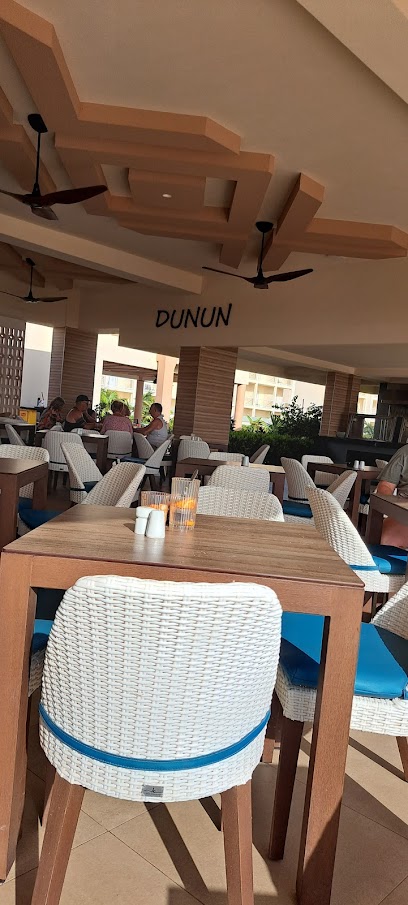
Sine Saloum Bar
Experience vibrant local culture and refreshing drinks at Sine Saloum Bar in Dakar's lively atmosphere.
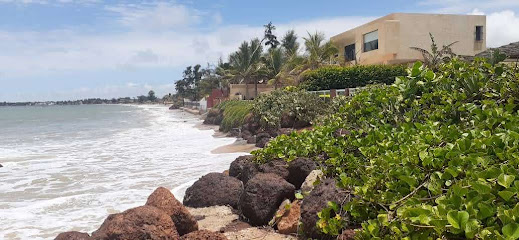
Bar Mbin Maak
Discover Bar Mbin Maak, a vibrant bar in Joal Fadiout, offering a taste of local drinks and an inviting atmosphere for all travelers.
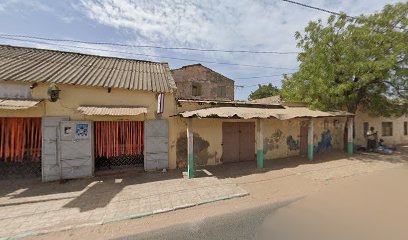
Sorouba
Experience the vibrant nightlife at Sorouba, a premier bar in Pointe Sarène, perfect for unwinding with great drinks in a lively atmosphere.
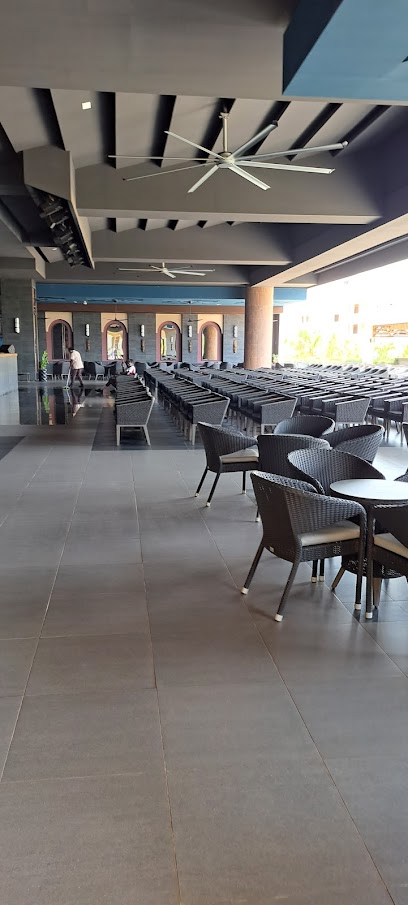
Bar
Experience the vibrant atmosphere and local flavors at this charming bar in Ndiédieng, where culture and hospitality meet.
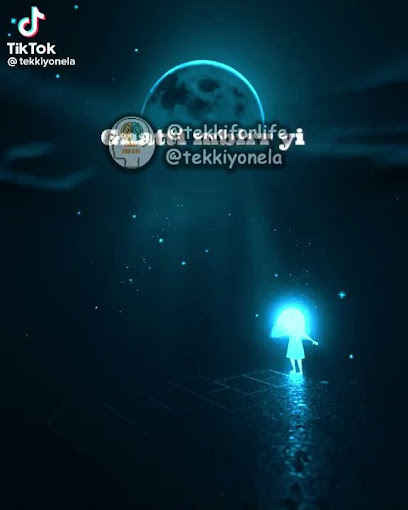
Cabane Nid du Saloum
Discover the serene beauty of Cabane Nid du Saloum, a tranquil bar in Palmarin offering stunning views and refreshing local drinks.
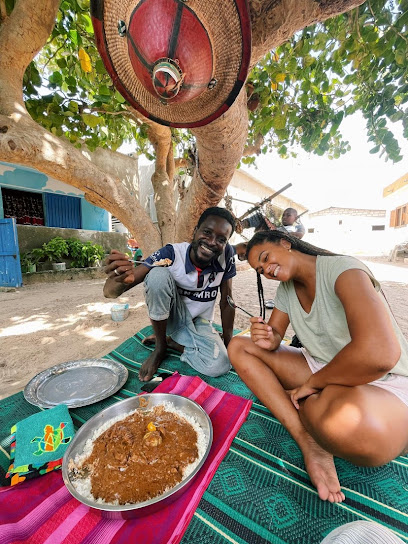
La Brunette Sport Pétanque ping-pong
Discover the lively atmosphere of La Brunette Sport Pétanque, where pétanque meets refreshing drinks in the heart of Dangane.
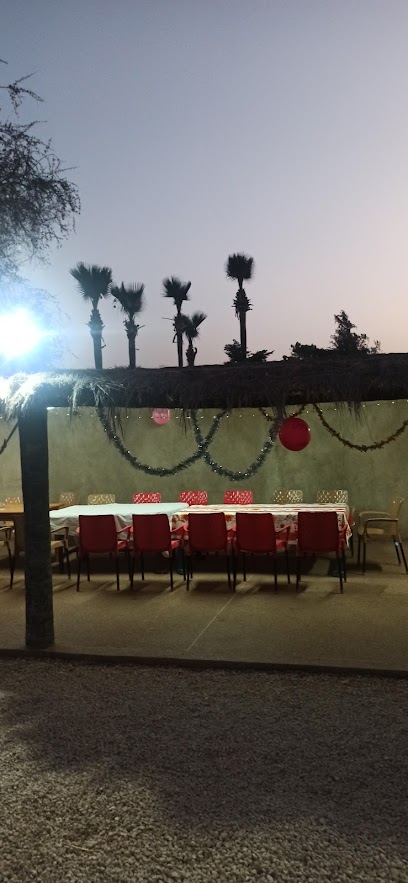
Local Phrases about Sine-Saloum Delta
-
- HelloSalamalekum
[sa-la-ma-le-kum] - GoodbyeJerejef
[je-re-jef] - YesWaaw
[waaw] - NoDéedéet
[dee-deet] - Please/You're welcomeJërëjëf
[je-re-jef] - Thank youJërëjëf
[je-re-jef] - Excuse me/SorrySama xarit
[sa-ma kha-rit] - How are you?Nanga def?
[nan-ga def?] - Fine. And you?Déedéet. Nopp?
[dee-deet. nop?] - Do you speak English?Bul ni ëngels?
[bul ni en-gels?] - I don't understandDéedéet. Ma ngi faa.
[dee-deet. ma nji faa.]
- HelloSalamalekum
-
- I'd like to see the menu, pleaseNopp, dëkkë menu nañu
[nop, de-ke me-nu na-nu] - I don't eat meatMa nekk loxo
[ma nek lo-cho] - Cheers!Mbaaax!
[em-baax] - I would like to pay, pleaseNopp, dëkkë nataal
[nop, de-ke na-taal]
- I'd like to see the menu, pleaseNopp, dëkkë menu nañu
-
- Help!Nangu!
[nan-gu] - Go away!Dégg!
[degg] - Call the Police!Dama xarit polis!
[da-ma kha-rit po-lis!] - Call a doctor!Dama xarit tabax!
[da-ma kha-rit ta-bakh] - I'm lostMa defal
[ma de-fal] - I'm illMa laaj
[ma laaj]
- Help!Nangu!
-
- I'd like to buy...Nopp, dëkkë...
[nop, de-ke...] - I'm just lookingDoomu leen
[do-mu leen] - How much is it?Beugé naa la?
[beu-ge naa la?] - That's too expensiveSa yaram la
[sa ya-ram la] - Can you lower the price?Dama def la xew?
[da-ma def la xew?]
- I'd like to buy...Nopp, dëkkë...
-
- What time is it?Ku neexul?
[ku ne-xul] - It's one o'clockWaaw kat
[waaw kat] - Half past (10)Dibéer na (10)
[di-beer na (10)] - MorningJonganté
[jon-gan-te] - AfternoonKër gi
[ker gi] - EveningSantanté
[san-tan-te] - YesterdayXale yi
[xa-le yi] - TodayXalis
[xa-lis] - TomorrowNopp
[nop] - 1Benn
[ben] - 2Juj
[juj] - 3Talat
[ta-lat] - 4Nëgg
[negg] - 5Juroom
[ju-room] - 6Juróom jëf
[ju-room jef] - 7Njëkk
[njekk] - 8Ñett
[net] - 9Juroom jël
[ju-room jell] - 10Fukk
[fukk]
- What time is it?Ku neexul?
-
- Where's a/the...?Ñaari...?
[nya-ri] - What's the address?Sant yépp?
[san yep] - Can you show me (on the map)?Dama xarit (soppi mapa)?
[da-ma kha-rit (sop-pi ma-pa)] - When's the next (bus)?Mangi ci kanam (bus)?
[man-gi ci ka-nam (bus)] - A ticket (to ....)Papie (ci ...)
[pa-pie (ci)]
- Where's a/the...?Ñaari...?
History of Sine-Saloum Delta
-
The Sine-Saloum Delta, located in the western part of Senegal where the Sine and Saloum rivers converge, has been inhabited since ancient times. The region was originally settled by the Serer people, who are known for their deep-rooted cultural traditions and historical significance in Senegal. Archaeological findings in the region reveal evidence of early human activity, including ancient shell middens and burial mounds, indicating long-standing settlements and complex societies.
-
During the medieval period, the Sine-Saloum Delta became a center of power for the Serer kingdoms, particularly the Kingdoms of Sine and Saloum. These kingdoms were known for their elaborate social and political structures, as well as their resistance to Islamization during the early stages of Islamic expansion in West Africa. The kings, known as Maad a Sinig and Maad Saloum, wielded significant influence and maintained their autonomy through strategic alliances and military prowess.
-
The Sine-Saloum Delta, like many parts of West Africa, was deeply affected by the Atlantic Slave Trade. From the 16th to the 19th century, the region became a significant site for the capture and export of enslaved Africans. European traders, particularly the Portuguese, French, and British, established trading posts along the coast. The legacy of this dark period is still felt today, with remnants of colonial architecture and poignant oral histories preserved by the local communities.
-
In the late 19th century, the Sine-Saloum Delta came under French colonial rule, following the broader colonization of Senegal. The French administration imposed new political and economic systems, which disrupted traditional ways of life. The construction of infrastructure such as roads and ports aimed to facilitate the extraction of resources and the export of groundnuts, a major cash crop. Despite the challenges, local resistance and adaptation marked this period, as the Serer people sought to preserve their cultural heritage.
-
Senegal gained independence from France in 1960, and the Sine-Saloum Delta has since undergone significant changes. Post-independence, the region has seen efforts to modernize and develop, with a focus on education, healthcare, and infrastructure. The delta's rich biodiversity and cultural heritage have also made it a focal point for eco-tourism and cultural tourism. The establishment of the Saloum Delta National Park has helped protect the unique ecosystems and promote sustainable development.
-
The Sine-Saloum Delta is renowned for its vibrant cultural heritage, which includes traditional music, dance, and ceremonies. The Serer people celebrate numerous festivals throughout the year, such as the Ndut initiation rites and the annual wrestling competitions known as 'Laamb'. The local cuisine is also a highlight, featuring dishes made from fresh seafood, millet, and locally grown vegetables. Artisanal crafts, such as weaving and pottery, are integral to the cultural identity of the region.
Sine-Saloum Delta Essentials
-
The Sine-Saloum Delta is located in the southwestern part of Senegal. The nearest international airport is Blaise Diagne International Airport (DSS) in Dakar, approximately 150 kilometers away. From Dakar, you can take a taxi or hire a private car to reach the delta, which typically takes around 3 to 4 hours by road. There are also bus services available from Dakar to major towns in the delta region such as Foundiougne and Fatick.
-
Within the Sine-Saloum Delta, local taxis and bush taxis (sept-places) are the most common modes of transportation for getting around. Boat trips are also available to explore the delta's waterways and islands. Bicycles can be rented in some areas for short trips and to enjoy the scenic routes. For a more immersive experience, consider hiring a local guide who can navigate the intricate waterways and offer insights into the region's culture and history.
-
The official currency in Senegal is the West African CFA Franc (XOF). Credit cards are accepted in some hotels, restaurants, and larger shops, but it is advisable to carry cash, especially in smaller establishments and rural areas. ATMs are available in larger towns such as Foundiougne and Kaolack, but it is wise to withdraw sufficient cash in Dakar before traveling to ensure you have enough funds.
-
The Sine-Saloum Delta is generally a safe destination for tourists. However, as with any travel destination, it is advisable to take standard precautions. Avoid walking alone at night in unfamiliar areas and keep an eye on your belongings in crowded places. While the delta region is relatively safe, it is best to stay vigilant and aware of your surroundings. There are no specific high-crime areas targeting tourists, but it is always best to stay cautious.
-
In case of emergency, dial 17 for police assistance and 18 for fire services. Medical facilities are available in larger towns such as Foundiougne and Kaolack. It is recommended to have travel insurance that covers medical emergencies. For minor health issues, there are pharmacies in the towns where you can purchase over-the-counter medications.
-
Fashion: Do dress modestly, especially in rural areas and when visiting religious sites. Avoid wearing revealing clothing. Religion: Do respect local customs and traditions. Always ask for permission before entering mosques or other religious sites. Public Transport: Do be respectful and give up your seat to elderly passengers. Don't eat or drink on public transport. Greetings: Do greet people with a handshake. A friendly 'As-salamu alaykum' (peace be upon you) is a common greeting. Eating & Drinking: Do try local delicacies and accept food offerings graciously. Don't refuse hospitality, as it is considered impolite.
-
To experience the Sine-Saloum Delta like a local, visit the weekly markets where you can buy fresh produce, artisanal crafts, and traditional goods. Engage with locals, as they are often friendly and willing to share stories about the region's history and culture. Don't miss visiting the traditional Serer villages to learn about their unique customs and practices. For a unique experience, take a pirogue (traditional canoe) ride through the mangroves and observe the diverse birdlife and marine species.
Nearby Cities to Sine-Saloum Delta
-
Things To Do in Bakau
-
Things To Do in Serekunda
-
Things To Do in Serrekunda
-
Things To Do in Lamin
-
Things To Do in Kaolack
-
Things To Do in Brikama
-
Things To Do in Gunjur
-
Things To Do in Mbour
-
Things To Do in Farafenni
-
Things To Do in Soma
-
Things To Do in Thiès
-
Things To Do in Dakar
-
Things To Do in Janjanbureh
-
Things To Do in Canchungo
-
Things To Do in Bissau








